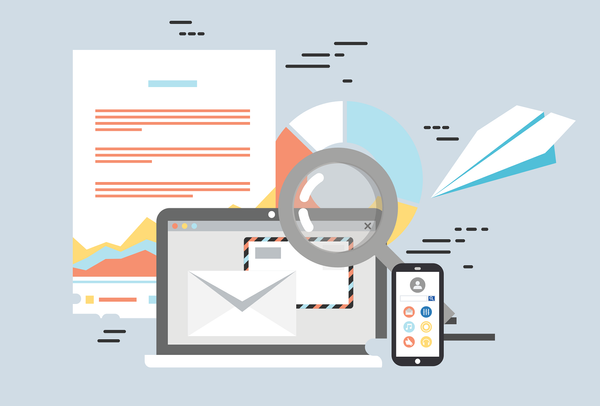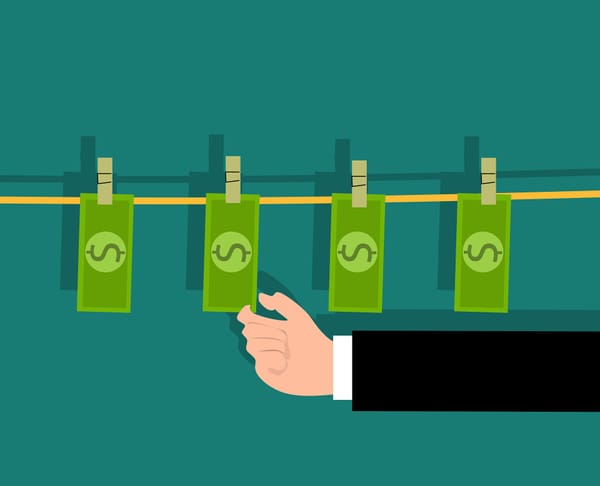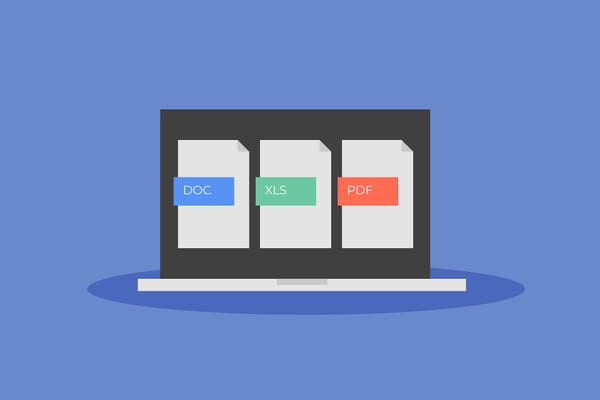What is Mailchimp and How to Use It Safely

Mailchimp is a giant in the world of digital marketing, used by over 12 million people around the globe. Each day, over 1 billion emails are sent through the platform, reaching an average of 3,000 contacts per user list. These campaigns achieve an average open rate of 21% and a click-through rate of 2.7%, highlighting the platform's power to connect businesses with their audience.
The platform is especially popular among small businesses—over 80% of its customers come from small companies spanning more than 175 countries.
In this article, you'll get a comprehensive overview of Mailchimp, including its key features and benefits, as well as an in-depth look at potential security risks and practical steps to use it safely for your small business.
What is Mailchimp?
Mailchimp is an all-in-one email marketing platform that allows businesses to create, manage, and send email campaigns to customers.
Mailchimp empowers businesses of all sizes, from entrepreneurs and freelancers to large corporations, to connect to their audience, increase sales, and build brand loyalty. Entrepreneurs and freelancers prefer it because it's user-friendly and packed with handy features.
Key Features of Mailchimp
Mailchimp offers a suite of robust features designed to simplify and enhance your digital marketing efforts. Here’s a closer look at some of its key features:
Email Campaign Creation
With Mailchimp, designing newsletters, promotions, and other types of emails is straightforward—even if you don't have a background in design. The drag-and-drop editor and customizable templates make it easy to create professional-looking emails that reflect your brand’s style.
Audience Management
Keeping track of your customer lists is crucial for targeted marketing. Mailchimp lets you manage your contacts effectively by tracking email preferences, engagement levels, and other key metrics. This segmentation ensures your campaigns reach the right audience, which can lead to better engagement and higher conversion rates.
Automation
Save time and boost efficiency by setting up automated emails based on customer behavior. Whether it's a welcome email for new subscribers or personalized product recommendations, automation helps maintain a consistent connection with your audience, even when you're not actively managing your campaigns.
Analytics
To make informed decisions, you need to know how your emails are performing. Mailchimp provides detailed analytics, including open rates, click-through rates, and conversion metrics. These insights enable you to fine-tune your strategies and improve future campaigns.
AI-powered Content Optimizer
Leveraging the power of artificial intelligence, Mailchimp's Content Optimizer helps enhance your email content. It offers suggestions to improve language, layout, and overall engagement, ensuring that your messages are both effective and appealing to your subscribers.
Landing Pages
In addition to email campaigns, Mailchimp allows you to create customized landing pages. These pages are designed to capture leads and further engage your audience, making them a valuable extension of your digital marketing strategy.
What is Mailchimp Used For?
Mailchimp is primarily known as an email marketing tool, but its capabilities extend far beyond sending newsletters. It helps you design attractive email campaigns without requiring advanced design skills, making it ideal for small business owners who want to reach their audience without the need for a full-fledged design team. Whether you're promoting a sale, announcing a new product, or simply staying in touch with your customers, Mailchimp provides the tools you need to communicate effectively.
Beyond basic email campaigns, Mailchimp offers robust automation features, letting you set up personalized sequences that respond to customer behavior. It also helps manage your audience by segmenting contacts based on preferences and engagement, which means you can target your messages more precisely. Additionally, with features like landing pages and AI-powered content optimization, Mailchimp enables you to extend your marketing efforts beyond emails to create a cohesive digital strategy that grows your business.
How Much Does Mailchimp Cost?
Mailchimp offers a flexible pricing structure to suit businesses of all sizes, starting with a free plan that's ideal for beginners or small businesses with a limited number of contacts. The free plan provides access to many of Mailchimp’s essential features, such as basic email campaigns, audience segmentation, and simple automation. This option is a great way to test the waters and see how Mailchimp can benefit your business without any upfront cost.
For businesses that require more advanced features and higher sending limits, Mailchimp offers paid plans that scale with your needs. The Essentials, Standard, and Premium plans come with additional capabilities like advanced reporting, multi-step automation, and improved customer support, with prices based on the number of subscribers and emails sent. You can always check Mailchimp's pricing page for the most up-to-date details, ensuring you choose the right plan for your business as it grows.
Mailchimp integrations
Mailchimp seamlessly connects with over 300 popular business tools, enabling you to streamline your marketing efforts and manage your customer relationships more effectively. These integrations allow you to sync data, automate workflows, and extend your reach across various platforms without the need for complex setups. Below are a few examples of how Mailchimp works with other essential business tools.
CRM Systems
Mailchimp integrates with a variety of CRM systems, such as Salesforce and HubSpot. This integration lets you automatically sync customer data between your CRM and Mailchimp, ensuring that your email campaigns are always up-to-date with the latest contact information. With these connections, you can segment your audience based on behavior and preferences, making it easier to send targeted messages that resonate with your customers and drive engagement.
Social Media Platforms
Connecting Mailchimp with social media platforms like Facebook, Instagram, and LinkedIn enables you to amplify your email marketing efforts. By integrating with these networks, you can repurpose your email content for social media ads, boost posts, and even gather insights about your audience's interactions across channels. This cohesive approach helps you maintain a consistent brand voice and reach your customers wherever they spend their time online.
E-commerce Platforms
Mailchimp’s integration with e-commerce platforms such as Shopify, WooCommerce, and Magento is a game-changer for online retailers. By syncing your store data with Mailchimp, you can automatically track customer purchases and behavior. This enables you to create personalized email campaigns, like targeted product recommendations or abandoned cart reminders, which can lead to increased sales and improved customer loyalty.
Related: Tips for Using Google Workspace Safely
The Potential Security Risks of Using Mailchimp
While Mailchimp can be a straightforward way to stay connected with customers, the platform does come with some potential security vulnerabilities that businesses need to be aware of:
- Data Breaches: As an online platform, Mailchimp can be targeted by hackers who want to steal your business and your customers' data.
- Phishing Attacks: Cybercriminals may try to impersonate your business or Mailchimp support team through fake emails to trick you into sharing sensitive information.
- Weak Account Security: If your Mailchimp account has a weak password or isn't secured with two-factor authentication, it becomes vulnerable to unauthorized access.
- Device Security: If you or your team access Mailchimp on unprotected devices, it can lead to data exposure or malware infections.
- Human Error: Mistakes like sending emails to the wrong audience segment or accidentally sharing private customer information are also potential risks.
Related: How to Check If Your Business Is Affected by a Breach (And What to Do if It Is)
How to Use Mailchimp Safely
Set a Strong Password
Creating a strong, unique password is your first line of defense. Avoid reusing passwords from other accounts—especially those you use for critical services like email or banking. Instead, opt for a password that combines uppercase and lowercase letters, numbers, and special characters. Consider using a password manager to generate and securely store complex passwords, ensuring that your Mailchimp account remains robust against unauthorized access.
Enable Two-Factor Authentication (2FA)
Two-factor authentication adds an extra layer of security by requiring a second verification step, such as a code sent to your phone, in addition to your password. Enabling 2FA ensures that even if someone obtains your password, they will still need the second factor to access your account, making it significantly more secure.
Be Wary of Phishing
Phishing attempts are a common tactic used by cybercriminals to trick users into giving up sensitive information. Be cautious when receiving emails, calls, or messages that claim to be from Mailchimp, especially if they contain spelling mistakes, suspicious links, or urgent requests for personal information. These messages are often designed to look legitimate but are intended to steal your data. Always verify the sender's details and, if in doubt, contact Mailchimp directly using verified contact information.
Regularly Review Account Activity
Keeping an eye on your account activity is essential for detecting any suspicious behavior. Regularly review login activity within your Mailchimp account, and look out for any logins from unfamiliar devices or locations. If you notice anything suspicious, change your password immediately and report the incident to Mailchimp support. This proactive approach helps safeguard your account and maintain your business’s security.
Keep Software Updated
Maintaining updated software is a critical part of your overall security strategy. Ensure that your web browser, operating system, and any other software used to access Mailchimp are always up-to-date. Outdated software can leave your devices vulnerable to security breaches, malware, and other cyber threats. Regular updates not only improve performance but also include important security patches that protect your sensitive business data.
Related: How to Secure Information (Yours and Your Clients') on WhatsApp Business
Is Your Business Safe?
With Bitdefender Ultimate Small Business Security, you can protect your company on every front. This comprehensive solution offers robust email protection that scans and blocks phishing attempts, suspicious links, and fake invoices, while Scam Copilot monitors emails, texts, and chats for fraud and provides real-time alerts and guidance. Additionally, its Password Manager generates strong, complex passwords, and the VPN ensures that your remote team stays secure even on public Wi-Fi networks.
Beyond safeguarding communications, Bitdefender actively defends against malware threats—detecting and blocking viruses, ransomware, and spyware on all devices. It also monitors your business's digital identity, alerting you to any potential data leaks or unauthorized use of your brand, including exposure on the dark web. With this all-in-one security suite, you can confidently protect your business and focus on growth without worrying about cyber threats.
Learn more about small business security plans.
FAQs
Is Mailchimp Safe for Businesses to Use?
Mailchimp is generally secure and reliable, though like any platform handling sensitive data, it comes with risks such as data breaches, phishing, and weak passwords. These concerns can be minimized by using strong, unique passwords, enabling two-factor authentication, managing user permissions carefully, and monitoring login activity.
Adopting additional security measures—like educating your team on best practices and using tools such as Bitdefender Ultimate Small Business Security—further helps protect your account and sensitive customer information.
What Can Mailchimp Do for My Business?
Mailchimp is an all-in-one marketing platform that helps you connect with customers across multiple channels, including emails, landing pages, digital ads, and social media. Its easy-to-use templates and automation features let you build your email list and nurture leads effectively, saving you time while boosting engagement.
Additionally, Mailchimp provides detailed analytics to track campaign performance and integrates with over 300 popular business apps, streamlining your marketing efforts and driving growth for your business.
Do I Need a Business Email to Use Mailchimp?
While you can use a personal email with Mailchimp, it's best to opt for a professional business email (e.g., [email protected]). A dedicated business email improves deliverability, enhances your brand's credibility, and simplifies audience management and data tracking.
Is Mailchimp free?
Mailchimp offers a free plan that’s ideal for small businesses or those just starting with email marketing. The free tier provides essential features like basic email campaigns, signup forms, and audience management, making it a great way to test the platform without any upfront cost.
However, the free plan comes with limitations on the number of subscribers and emails you can send each month. As your business grows or if you need more advanced features like automation, detailed analytics, and enhanced customization, you might consider upgrading to one of Mailchimp’s paid plans.
tags
Author
Cristina is a freelance writer and a mother of two living in Denmark. Her 15 years experience in communication includes developing content for tv, online, mobile apps, and a chatbot.
View all postsRight now Top posts
How to Protect Your WhatsApp from Hackers and Scammers – 8 Key Settings and Best Practices
April 03, 2025
Outpacing Cyberthreats: Bitdefender Together with Scuderia Ferrari HP in 2025
March 12, 2025
Streamjacking Scams On YouTube Leverage CS2 Pro Player Championships to Defraud Gamers
February 20, 2025
How to Identify and Protect Yourself from Gaming Laptop Scams
February 11, 2025
FOLLOW US ON SOCIAL MEDIA
You might also like
Bookmarks







